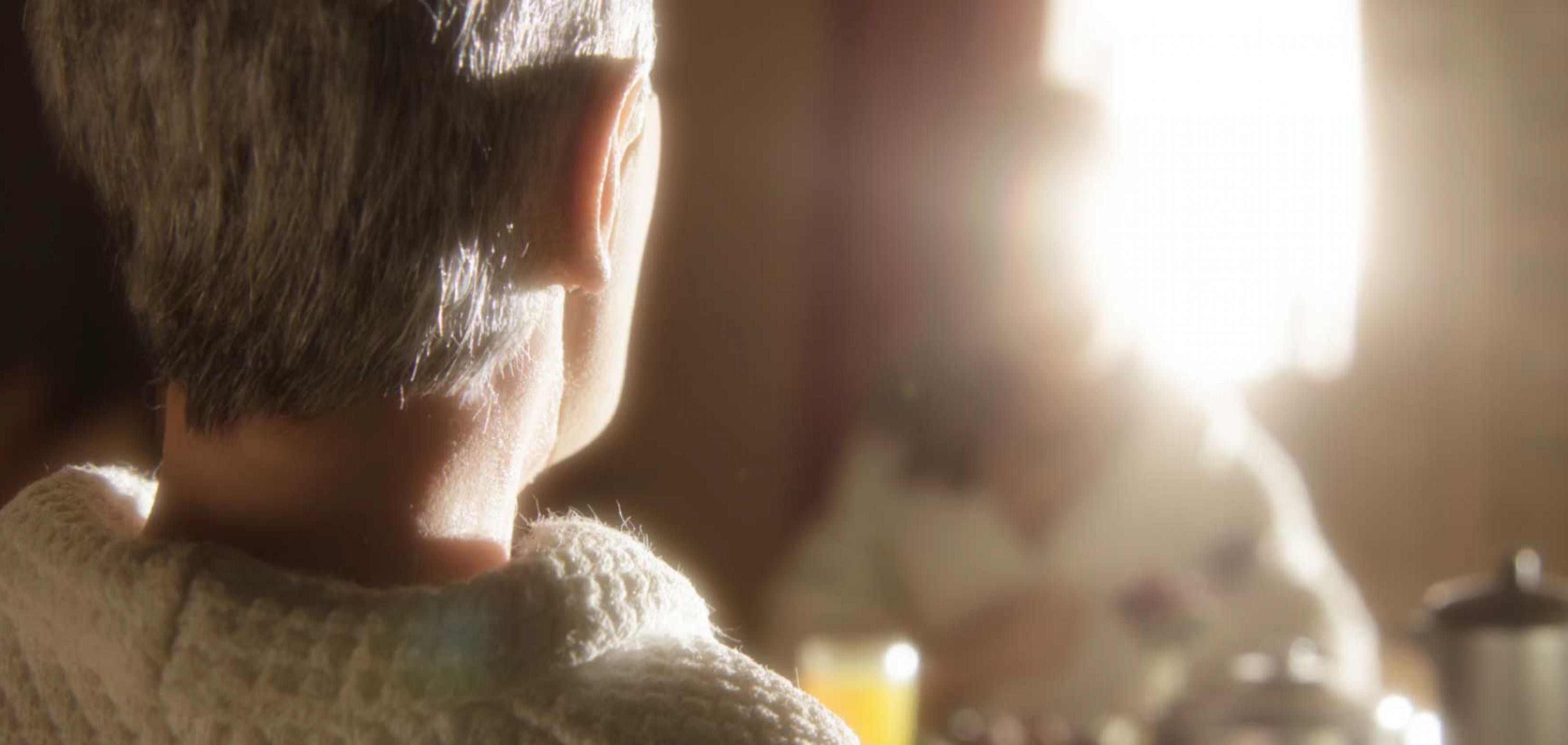In 1994, the lanky, gaunt character actor and playwright Tom Noonan made an electrifying feature debut with What Happened Was; a single-location two-hander, adapted from Noonan’s play of the same name, about two socially inept co-workers (played by Noonan himself and Karen Silas) fumbling their way toward intimacy over the course of an evening on an increasingly disastrous first date. It’s one of the saddest, most uncomfortable films about loneliness ever made – practically a horror film about the human condition, with expressionistic light and shadows that frequently transform the towering Noonan into a kind of Frankenstein figure. When Charlie Kaufman cast Noonan in a small but crucial role in his 2008 debut Synecdoche, New York, the choice felt like Kaufman paying him a favour; What Happened Was, with its neurotic characters engaged in nakedly confessional dialogue, is essentially a Kaufman film without the high-concept gimmickry. Like Noonan’s film, Anomalisa is adapted from a play1 by its writer-director. And despite being rendered in stop-motion animation, it’s the closest Kaufman has come to a pure, unencumbered emotional directness.
Not that Kaufman’s latest is entirely free from gimmickry, nor that there’s anything inherently wrong with that. Anomalisa’s most audacious conceit is that every one of its stop-motion animated characters – apart from those involved in the film’s central relationship (Michael & Lisa, voiced by David Thewlis and Jennifer Jason Leigh respectively) – is voiced by Noonan with his distinctively soft, lulling timbre. The effect is one of homogeneity, and heightens the sense of weariness and apathy with which Michael experiences humanity as he encounters it, or at least as he experiences it at this moment in his life. This device isn’t particularly subtle, but neither are a lot of things in the film, starting with the use of puppets, through to Michael’s profession as a travelling motivational speaker being at odds with his despondence; an irony not far removed from that of George Clooney’s slick façade as a corporate spokesperson in Jason Reitman’s noxious Up in the Air (or Joaquin Phoenix’s love-letter ghostwriter in Her, from Kaufman’s main collaborator Spike Jonze).
Which, incidentally, is where the film begins. After a cacophony of voices over a black screen (all Noonan’s, overlaid on top of each other), we begin with an almost celestial vision of the clouds at sunset, with an airplane appearing like a tiny speck in the distance. The scene captures something quite uncanny, which is the childlike sense of wonder that comes with being in flight,2 even if it’s a feeling that’s eventually dulled with age and experience. Far from another Kaufman wallow, Anomalisa is about love, joy, wonder, et al. as being feelings that are available to those open to them, and feelings that can intrude almost arbitrarily into one’s existence.
The point that Michael discovers Lisa is one such epiphany; a literal tear in the fabric of reality, as the former steps out of the shower, inspecting the exposed gadgetry under his face, and miraculously hears a voice that isn’t the same stultifying one that he’s heard from the moment we meet him. Running across the hotel corridor, frantically going door to door trying to track down its source, he eventually stumbles upon a room occupied by two women, both in town to attend one of Michael’s seminars, one of whom is Lisa. After spending time with both of them in the hotel bar, he invites Lisa back to his room, and the two begin a tête-à-tête that recalls a more romantic iteration of Noonan’s What Happened Was… albeit with more puppet sex.
There’s rarely a false moment in the development and dissolution of this brief encounter, which comprises a large bulk of the film; including a musical moment that segues from heart-rending to gut-busting in the span of a few seconds. Anomalisa doesn’t entirely dispel the notion that Kaufman’s films are solipsistic, narcissistic straight-white-male whinge-fests, full of a mixture of self-pity, self-loathing and self-congratulation. But it does display a welcome self-awareness of these tendencies in Kaufman’s films (particularly in one perfectly crafted nightmare sequence), as well as a rare, beaming emotional resonance. Most filmmakers of Kaufman’s ilk could only dream of achieving this, let alone without flesh-and-blood humans to work with.
Around the Staff
| Conor Bateman | |
| Luke Goodsell | |

